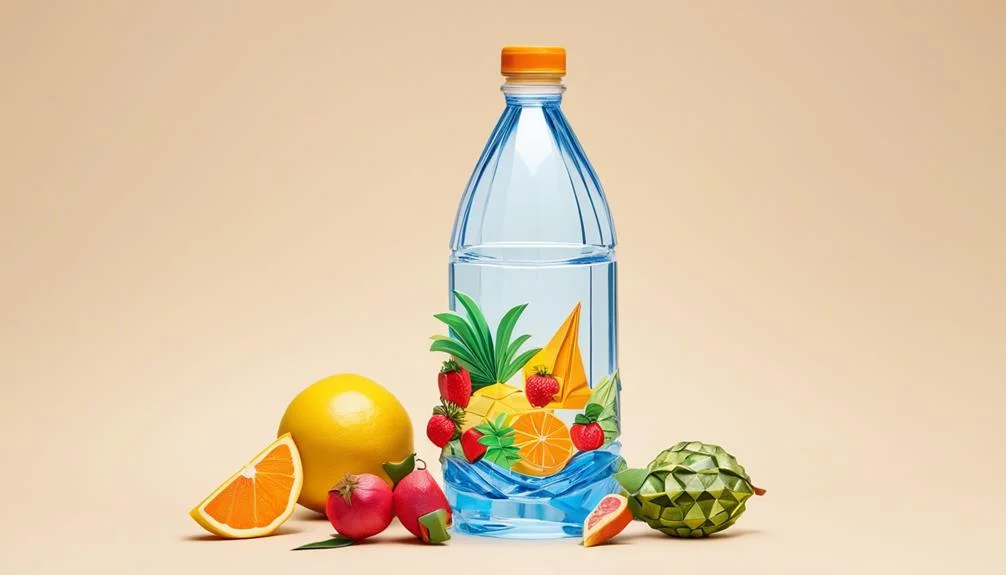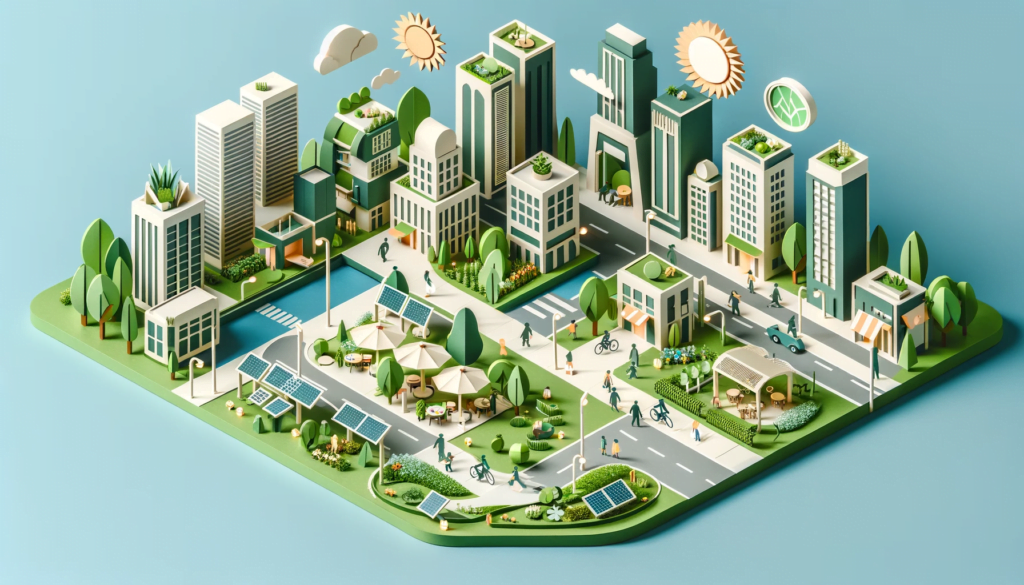Plastic bags offer convenience and affordability, favored for their lightweight and durable nature. However, their negative environmental impact is significant, with pollution during production, disposal hazards to wildlife, and slow decomposition rates. While convenient for packaging, the long-term ecological costs must be considered. Beyond convenience, plastic bags pose health risks due to toxic chemical exposure and choking hazards. Understanding the broader implications of plastic bag use is essential in making informed choices. Evaluating alternatives like reusable cloth or biodegradable bags can lead to more sustainable practices. Consider the full spectrum of pros and cons before choosing your packaging options.
Takeaways
- Convenience in packaging and carrying items easily.
- Low production cost benefits consumers but harms the environment.
- Durability and water resistance make them suitable for various purposes.
- Persistent pollution and harm to wildlife due to slow decomposition.
- Health risks from toxic chemicals and environmental pollution.
Environmental Impact
The environmental impact of plastic bags is a topic of significant concern due to their widespread use and detrimental effects on ecosystems. Plastic bags, made from non-renewable resources like crude oil and natural gas, contribute to pollution throughout their lifecycle. Manufacturing plastic bags releases greenhouse gases and other pollutants into the atmosphere, while the disposal of these bags poses a threat to wildlife both on land and in water bodies.
Due to their lightweight nature, plastic bags are easily carried by the wind, leading to littering in urban areas, forests, and oceans. Marine animals often mistake plastic bags for food, resulting in ingestion and potential harm or death. Additionally, the slow decomposition rate of plastic bags means they persist in the environment for hundreds of years, further exacerbating the problem.
As a result, many regions have implemented bans or restrictions on single-use plastic bags to mitigate their environmental impact and promote sustainable alternatives.
Convenience and Accessibility
Convenience and accessibility play significant roles in the ongoing debate surrounding the use of plastic bags.
The convenience they offer in carrying items from stores to homes is undeniable, making them a popular choice for many consumers.
However, the easy accessibility and low cost of plastic bags have led to their overuse, resulting in environmental concerns that cannot be ignored.
Convenience of Plastic Bags
Is the widespread reliance on plastic bags driven more by convenience or necessity?
Convenience plays a significant role in the popularity of plastic bags. Plastic bags are lightweight, durable, and easy to carry, making them a convenient choice for consumers when shopping or transporting items. Their flexibility allows for easy storage and disposal, adding to their convenience factor. Compared to alternatives like paper bags or reusable bags, plastic bags are often more convenient due to their low cost and widespread availability in most stores.
The convenience of plastic bags is especially evident in situations where quick and efficient packaging is required, such as in grocery stores, convenience stores, or take-out restaurants. Their easy accessibility and ability to be carried in large quantities further enhance their convenience for both businesses and consumers.
However, it is essential to ponder the environmental impact of this convenience, as plastic bags contribute significantly to pollution and harm to wildlife. Balancing convenience with sustainability is vital in evaluating the overall impact of plastic bags on society.
Easy Accessibility Benefits
Widespread reliance on plastic bags is also driven by their easy accessibility benefits, particularly in settings where quick and efficient packaging is necessary. Plastic bags are lightweight, compact, and easy to store, making them readily available for consumers and businesses alike. Their convenience in carrying groceries, storing items, and disposing of waste has made them a popular choice in various industries.
| Easy Accessibility Benefits | Description |
|---|---|
| Lightweight | Easy to carry and transport |
| Compact | Take up minimal space in storage areas |
| Readily Available | Widely accessible in stores and markets |
| Convenient Packaging | Quick and efficient for various goods |
| Versatile Usage | Suitable for a range of purposes and products |
The easy accessibility of plastic bags simplifies tasks for individuals on-the-go and streamlines operations for businesses with high packaging demands. Despite their benefits, it is important to ponder the environmental impact and sustainable alternatives when utilizing plastic bags.
Drawbacks of Overuse
The ubiquity of plastic bags due to their easy accessibility has led to a myriad of drawbacks associated with overuse, especially regarding convenience and environmental impact. While convenient for consumers and retailers due to their lightweight nature and ability to carry various items, the overreliance on plastic bags has significant downsides.
One of the primary drawbacks is the environmental impact caused by the overuse of plastic bags. These bags are non-biodegradable, leading to pollution and harm to wildlife when improperly disposed of. Additionally, the production of plastic bags contributes to carbon emissions and depletes natural resources.
Moreover, the convenience of plastic bags has led to a culture of single-use items, promoting a throwaway mentality that exacerbates environmental issues. The ease of access to plastic bags has also hindered the adoption of more sustainable alternatives, such as reusable bags.
Cost-Effectiveness
Plastic bags' cost-effectiveness is a key consideration in evaluating their utility and impact on the environment. One of the primary arguments in favor of plastic bags is their low cost of production. Plastic bags are inexpensive to manufacture, making them a popular choice for retailers looking to keep operational costs down. This cost-effectiveness translates to lower prices for consumers, which can be particularly beneficial for individuals on tight budgets.
Additionally, the lightweight nature of plastic bags reduces transportation costs for businesses, as they are easier and cheaper to transport compared to alternatives like paper or reusable bags.
However, the apparent cost-effectiveness of plastic bags does not account for the long-term environmental and societal costs associated with their widespread use. The low upfront cost of plastic bags belies the expenses incurred in cleaning up plastic waste, managing landfill space, and addressing environmental damage caused by littered bags. As a result, while plastic bags may offer short-term financial benefits, the overall cost-effectiveness must consider the broader impact on the environment and society.
Durability and Reusability
One notable aspect to ponder when evaluating the utility of plastic bags is their durability and potential for reuse.
Strength: Plastic bags are known for their durability and strength, which allows them to hold a variety of items without tearing or breaking easily.
Water Resistance: Their resistance to water makes them suitable for carrying groceries, especially in rainy conditions, without the risk of items getting wet or damaged.
Reusability: Plastic bags can be reused multiple times for shopping, storage, or other purposes, extending their lifespan and reducing waste. By using them multiple times, their environmental impact can be minimized.
Considering these factors, plastic bags offer a level of durability and reusability that can make them a practical choice for consumers looking for a cost-effective and convenient packaging solution.
However, it is essential to balance these benefits with the environmental concerns associated with plastic waste and explore sustainable alternatives for long-term conservation efforts.
Health and Safety Concerns
When contemplating the use of plastic bags, it is vital to address the potential health and safety concerns associated with them.
One major issue is the exposure to toxic chemicals that can leach from the plastic into food or the environment.
Additionally, plastic bags pose a risk of being a choking hazard, especially to young children and animals.
Toxic Chemical Exposure
Exposure to toxic chemicals released from plastic bags can pose significant health and safety concerns for both humans and the environment. When considering the impact of toxic chemical exposure, several key factors come into play:
- Leaching: Plastic bags can leach harmful chemicals such as phthalates and bisphenol-A (BPA) when they come into contact with food or liquids, leading to potential health risks upon ingestion.
- Air Pollution: The production and incineration of plastic bags release toxic pollutants into the air, contributing to air pollution and respiratory issues in humans.
- Water Contamination: Improper disposal of plastic bags can result in them breaking down into microplastics, which can contaminate water sources, harming aquatic life and potentially entering the food chain.
These factors highlight the pervasive nature of toxic chemical exposure from plastic bags, emphasizing the importance of considering alternative, more environmentally friendly packaging options.
Choking Hazard Risks
Instances of choking hazards related to plastic bags can jeopardize the health and safety of individuals, particularly young children and pets. The lightweight and thin nature of plastic bags makes them easy to manipulate and potentially accessible to curious children or animals.
Young children, in particular, may not understand the risks associated with putting plastic bags over their heads or in their mouths, leading to a serious choking hazard. Additionally, pets are also at risk of suffocation or choking if they accidentally ingest or get entangled in plastic bags.
The potential risks posed by plastic bags as choking hazards highlight the importance of proper disposal and storage. It is vital for adults to keep plastic bags out of reach of children and pets, ensuring that they are stored securely and not left in areas where they could be easily accessed.
Raising awareness about the dangers of plastic bags as choking hazards can help prevent accidents and protect the well-being of vulnerable individuals.
Alternatives and Solutions
Exploring sustainable alternatives to plastic bags is crucial in mitigating the environmental impact of single-use plastics. As society becomes more conscious of the detrimental effects of plastic pollution, various eco-friendly options are emerging to replace traditional plastic bags.
Consider the following alternatives:
- Reusable Cloth Bags: These sturdy bags can be used multiple times, reducing the need for single-use plastics. They come in various sizes and designs, making them both practical and fashionable.
- Biodegradable Bags: Made from materials like cornstarch or cassava, these bags break down naturally over time, minimizing harm to the environment. They offer a more eco-friendly disposal option compared to traditional plastic bags.
- Paper Bags: While not as durable as plastic, paper bags are biodegradable and can be recycled. Many grocery stores offer paper bags as an alternative to plastic, encouraging customers to make more sustainable choices.
Frequently Asked Questions
Are Biodegradable Plastic Bags a Better Alternative?
Biodegradable plastic bags are often considered a potential solution to the environmental impact of traditional plastic bags. They are designed to break down more easily in the environment, offering a possible alternative worth exploring.
How Do Plastic Bag Bans Affect the Economy?
Plastic bag bans can impact the economy by shifting consumer behavior towards reusable alternatives, potentially boosting industries that produce eco-friendly bags. However, there may be initial costs for businesses and consumers to adapt to these changes.
Can Plastic Bags Be Recycled Effectively?
Plastic bags can be recycled effectively through proper collection systems, sorting facilities, and recycling processes. Innovative technologies are constantly being developed to improve plastic bag recycling rates and reduce environmental impact. Collaboration among stakeholders is essential.
What Are the Regulations on Plastic Bag Usage?
Regulations on plastic bag usage vary worldwide, with many countries implementing bans or fees to reduce environmental impact. These measures aim to promote reusable alternatives and encourage a shift towards sustainable practices in consumer behavior.
Do Reusable Bags Have Their Own Environmental Impact?
Reusable bags, often made of materials like cotton or recycled plastics, do have an environmental impact. While they can reduce single-use plastic waste, their production and maintenance require resources, energy, and can contribute to pollution if not properly managed.
Conclusion
In conclusion, the use of plastic bags presents both advantages and disadvantages. While they offer convenience and cost-effectiveness, they also have a significant negative impact on the environment.
It is important to consider the long-term consequences of using plastic bags and explore alternative solutions that are more sustainable and environmentally friendly.
By weighing the pros and cons, individuals and businesses can make informed decisions to reduce the harmful effects of plastic bags.









